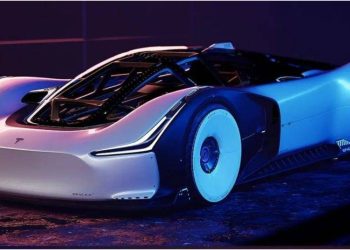As they did 118 years ago, Ford executives have a vision for the future and see electric mobility as a profitable, environmentally friendly business and a center for developing impressive technologies.
That is why the U.S. company announced a multi-million dollar budget for the manufacture of electric vehicles, as well as the construction of highly innovative battery plants and a complex for electrified trucks.
Overall, Ford and SK Innovation, a South Korean supplier, will invest 11.4 billion dollars in the project. The North Americans have reported that they will approve a $30 billion fund for the electrification of their product range up to 2025.
Impressive Facilities
The manufacturer and the Asian company will build two new facilities, “Blue Oval City” in Tennessee and “BlueOvalSK Battery Park” in Kentucky. The first will produce electric vehicles and batteries, while the second will be exclusively for battery manufacturing.
Bill Ford, great-great-grandson of the company’s founder pointed out that just as Ford led the Industrial Revolution, they will now lead the transformation to combat the climate crisis. “This is the moment when our leadership is important. The world is changing in profound ways,” he said.
Related content: Bridgestone Joins Electric Mobility with EV-only Tire Production
For his part, Ford CEO Jim Farley stressed that BlueOval will mark “the beginning of a new golden age” of the automobile.
Blue Oval City, will be six square miles in size, much larger than the Ford Rouge plant that Henry Ford built in the Detroit area a century ago. The Tennessee campus is expected to employ 6,000 people, house suppliers and a battery recycling operation.
The organization also issued a statement explaining that the facility will be one of the largest auto production centers in U.S. history and will operate as a vertically integrated system to reduce costs and minimize environmental impact.
Ford’s announcement is one of the largest investments by an automaker to move rapidly to electric vehicles and phase out gasoline-powered cars and trucks, as part of a global effort to combat climate change. Transportation is responsible for about 30% of U.S. greenhouse gas emissions, more than the energy sector.
Written by I Jhonattan González













